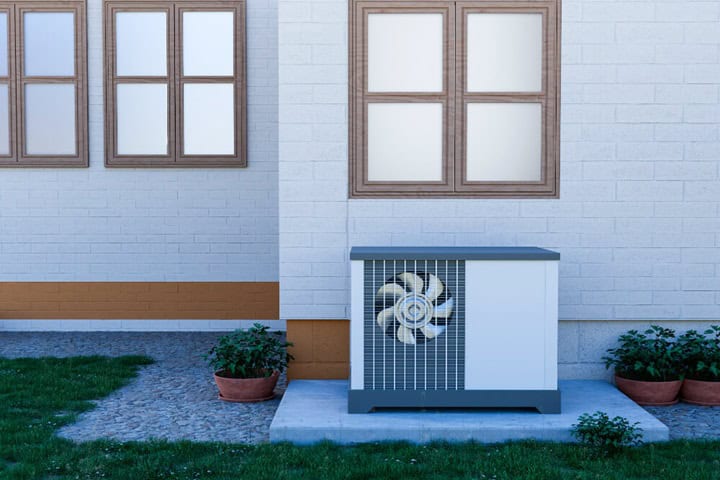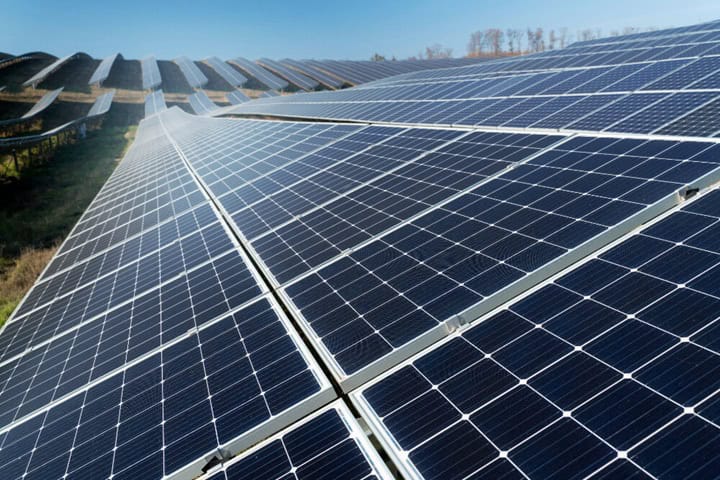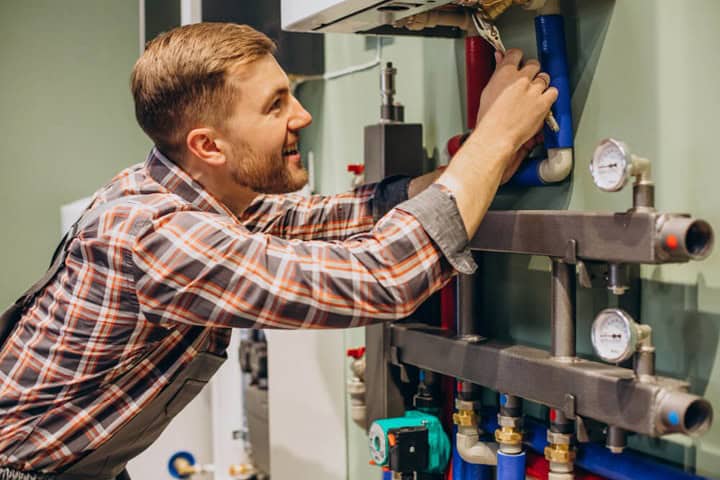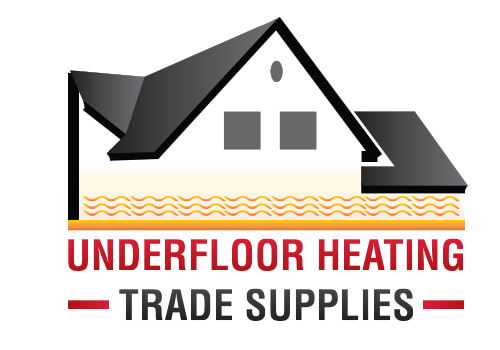
Are you looking for more ways to be more sustainable with your heating solutions? Find out about the eco-friendly benefits of underfloor heating for your sustainable heating methods…
In 2025, it is becoming harder to save every penny when it comes to our gas and electric bills, especially with prices rising. Regardless of what sized home you have, and how many occupants there are, the heating solution that you have can drastically impact your energy bills, hence why more homeowners are opting for underfloor heating – but is it a sustainable heating solution? In this article, we will look at how eco underfloor heating aids the sustainability of your home while reducing energy costs. We’ll delve into the energy efficiency of eco underfloor heating systems compared to traditional methods, the potential savings they offer, and their environmental benefits.
Key Points:
- Explore the advantages of underfloor heating for sustainable home living.
- Analyze the energy efficiency differences between underfloor and traditional heating systems.
- Investigate the cost benefits of installing underfloor heating.
- Discover the environmental merits of eco-friendly heating systems.
- Gain insights into the evolving landscape of home heating and its sustainability.
- Eco-Friendly Heating Solutions
- Can You Integrate Underfloor Heating With Other Renewable Energy Sources?
- Why Choose Underfloor Heating Over Traditional Systems?
- How Much Can I Save With Sustainable Underfloor Heating?
- Are Underfloor Heating Pipes Eco-Friendly?
- What Other Sustainable Heating Options Are There?
- 1. Air Source Heat Pumps
- 2. Ground Source Heat Pumps
- 3. Water Source Heat Pumps
- 4. Solar Water Heating
- Can Underfloor Heating Be Added to Boilers?
- Electric Combi Boilers
- Biomass Boilers
- Micro-CHP Systems
- Reduce Environmental Damage with Underfloor Heating
- FAQs
- Sources
Eco-Friendly Heating Solutions
Underfloor heating systems have become both a revolutionary and evolutionary movement towards sustainable living, but it is not something new – in fact, it dates back to Roman underfloor heating with the hypocaust.
These systems use radiant floor heating technology to efficiently warm spaces, ensuring heat is directly transferred to objects and people, not wasted into the air. This method is up to 40% more energy-efficient than traditional heating methods, making eco underfloor heating a key player in reducing household carbon emissions.
Can You Integrate Underfloor Heating With Other Renewable Energy Sources?
Eco underfloor heating systems are exceptionally compatible with renewable energy sources such as solar panels, air and ground-source heat pumps, and even biomass boilers. This integration allows for a substantial reduction in fossil fuel reliance, steering your home towards a more sustainable energy setup. Follow the links below to find out more details about each of these systems and use underfloor heating efficiently:
Why Choose Underfloor Heating Over Traditional Systems?
Underfloor heating systems provide a unique combination of comfort and efficiency. Unlike central heating systems that need to heat the entire volume of air in a room, underfloor heating targets the living space directly from below, offering quicker heat-up times and requiring less energy to maintain balanced temperatures. This method ensures a consistent level of comfort without the energy waste associated with central heating, thereby improving your home’s energy performance.
One of the most significant advantages of sustainable heating systems like underfloor heating is their ability to zone heat, and even heat multiple zones at once (otherwise known as multi-zone heating). Each area of your home can be controlled independently, allowing you to heat only the spaces you use.
Coupled with high-quality insulation and smart thermostat technology, these systems can optimise energy use and reduce costs by up to 25%, ensuring that your home operates at peak efficiency.
How Much Can I Save With Sustainable Underfloor Heating?
Whilst the initial investment in purchasing an eco underfloor heating kit can be off-putting for homeowners, the long term benefits far outweigh the upfront cost.
By switching to this sustainable heating option, homeowners can see reduced operational costs due to the efficient use of energy. Systems can be tailored to your home’s specific needs, which means running costs will vary, but the overall savings are hugely noticable.
Are Underfloor Heating Pipes Eco-Friendly?
Traditional radiators, which often need replacing every 10 to 15 years, become waste products quickly. In contrast, high-quality underfloor heating 12mm pipes, made from sustainable polyethylene of raised temperature resistance (PERT), are designed to last. With a 75-year guarantee, these pipes provide long-term reassurance and are less likely to contribute to landfill waste, as PERT can be safely recycled or melted down for reuse.
What Other Sustainable Heating Options Are There?
As mentioned, there are other sustainable heating methods that you could choose from, rather than just underfloor heating (although each of these systems can also be linked together too). Here are the most popular eco-friendly heating solutions:
1. Air Source Heat Pumps

Air source heat pumps (ASHPs) are a popular complement to sustainable heating systems, particularly underfloor heating. These systems extract heat from the outdoor air and are less intrusive and cheaper to install than other types. While ASHPs are more efficient in milder climates and have lower operating costs, they might struggle in extremely cold conditions. In such cases, alternative heat pump systems might be more appropriate, providing efficient, low-carbon heating.
2. Ground Source Heat Pumps
Similarly, ground source heat pumps (GSHPs) offer a consistent performance throughout the year because they utilise the stable underground temperature. Whether installed horizontally just below the surface or vertically up to 100 meters deep, GSHPs are among the most efficient heating options available today.
Although installation costs are quite high, these systems are likely to be more cost-effective in the long run due to their high efficiency and lower operational costs, and are better suited to commercial or office heating systems.
3. Water Source Heat Pumps

For properties near water bodies, water source heat pumps provide an effective heating solution by extracting energy from water. These systems are typically less costly than GSHPs, with prices around £10,000, and offer reliable heating, especially where the water temperature remains between 5-8°C. However, if the water source is prone to freezing, additional heating solutions may be needed to ensure warmth remains consistent throughout the colder months.
4. Solar Water Heating

Solar water heating systems offer a sustainable solution by using solar thermal panels to meet domestic hot water needs. These systems harness sunlight using collectors typically mounted on rooftops. While the UK’s solar potential varies, with higher efficiency in the south, even less sunny areas can benefit from this technology, albeit with slightly reduced effectiveness.
Such systems generally supply between 40-80% of a home’s heating needs, necessitating a supplementary heating system to fully meet demand. By integrating solar water heating, homeowners can significantly reduce their reliance on conventional energy sources, improving their home’s sustainability.
Can Underfloor Heating Be Added to Boilers?

The simple answer is, yes, both electric and water underfloor heating systems can be connected to the boiler in your home. In fact, they can be linked to other types of boilers too, as shown below:
Electric Combi Boilers
These units use electricity to provide heating and hot water, eliminating the need for fossil fuels. Their compact design makes them ideal for smaller homes or spaces without the room for a traditional boiler system. Electric boilers are known for their efficiency, as they convert almost all the energy they use into heat without any waste.
Biomass Boilers
This option is perfect for larger homes that require a thorough heating solution. Biomass boilers function similarly to traditional systems but have a significantly lower carbon output. The cost of installing and running a biomass boiler are typically lower than electric boilers.
While they are more substantial in size and might produce some operational noise, their environmental benefits and cost-effectiveness over time make them an attractive option for those looking to reduce their environmental impact.
Micro-CHP Systems
Micro combined heat and power (micro-CHP) systems take a step further by producing both heat and electricity from the same energy source, typically gas. While they still use fossil fuels, the dual output of these systems improves overall energy efficiency, making them a low-carbon alternative to traditional boilers.
Micro-CHP units can be more expensive to install, but they offer the benefit of potentially reducing electricity taken from the grid, thereby lowering energy costs and boosting home sustainability.
Reduce Environmental Damage with Underfloor Heating
In conclusion, it is clear that whilst there are numerous sustainable heating options available, the fact that underfloor heating can be incorporated to each of them shows that it is the most durable option of all, hence why more UK homes are opting for it. Even before installation, eco underfloor heating systems demonstrate their green credentials. The materials that we use in our systems are lighter and occupy less volume than traditional radiators, resulting in lower transportation impacts and reduced packaging waste.
Opting for a low-profile system underfloor heating in new builds can decrease the total construction height by up to 40mm, significantly reducing the amount of building materials needed and improving overall sustainability. This proactive approach in material and system design makes eco underfloor heating a preferred choice for environmentally conscious builders and homeowners.
FAQs
Can underfloor heating be powered by renewable energy?
Absolutely, underfloor heating systems can be effectively paired with renewable energy sources such as solar panels or heat pumps. This pairing allows for a reduction in fossil fuel usage, enhancing the overall sustainability of the heating system.
What types of underfloor heating systems are available?
There are two main types of underfloor heating systems: electric and water-based (hydronic). Electric underfloor heating systems use electric wires or mats and are typically easier and cheaper to install but can be more expensive to run. Hydronic systems circulate warm water through pipes and are more cost-effective in the long run, especially when integrated with renewable energy sources.
Sources
Sharpe, J., (2024) Why underfloor heating installations are picking up in UK homes. Installer Online. [online] Available at: https://www.installeronline.co.uk/heating/why-underfloor-heating-installations-are-picking-up-in-uk-homes/ [accessed 04/12/2024]
